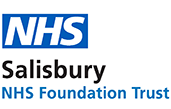Swallowing recommendations are given by your Speech and Language Therapist (SaLT) to improve swallow safety by reducing the risk of choking and/or aspiration occurring.
Choking
What is it?
Choking occurs when breathing is impacted by a partial or complete blocking of the airway.
Severe choking is more likely to occur on food than fluids and will likely result in an inability to ask for help or clear the blockage with coughing.
If someone appears to be choking and unable to clear the blockage independently, you will need to help them immediately.
If you/the person you care for is at risk of choking:
We strongly advice you go to the St John’s Ambulance website and familiarise yourself with the relevant information on what to do when someone is choking.
People most at risk of choking, are those with:
- Swallow difficulties
- Dysarthria / slurred speech, as individuals are also likely to have other associated difficulties such as reduced oral and respiratory control.
- Lack of adequate dentition e.g. lack of teeth or ill-fitting dentures
- Cognitive deficits or periods of acute confusion
These difficulties often occur in people with the following medical conditions:
- Neuro-muscular e.g. Stroke, Dementia, MS, MND, PD or HD
- Severe and complex disabilities e.g. Cerebral palsy
Aspiration
What is it?
The term aspiration, in relation to swallowing difficulties, refers to food and/or drink entering the airway. For people with swallow difficulties, aspiration typically occurs due to changes in the way they swallow but can also occur due to other factors e.g. cognition.
Unlike choking, aspiration does not block the airway.
If aspiration occurs, it can result in serious health problems such as: chest infection, lung damage (if repeated chest infections occur), and even malnutrition/dehydration if it prevents one from getting having adequate oral intake. Furthermore, patients who experience unmanaged aspiration often experience longer hospital stays and reduced quality of life.


